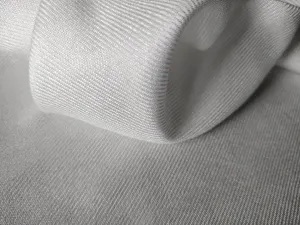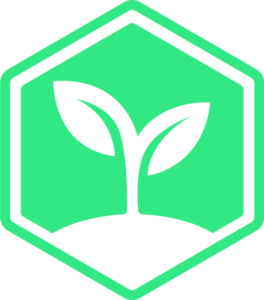
Herbal Fab
Herbal fab is a one-stop shop for sustainable fabrics such as organic cotton, linen, hemp, and Tenzel, with no minimum order quantity. They also offer custom sewing to help eco-friendly fashion brands scale.
PRODUCTS
Images are just visual aids created by EcoHive to give the viewer a general idea of what the vendor can offer. They are based on what can be found in the vendor’s webshop. They do not represent how the products actually look, nor do they showcase the entire product offering of the vendor. For more information, check out the portfolio section or visit the vendor’s website.
SHOWCASE
About Herbal Fab

Materials
- Organic Cotton
- Linen
- Lenzing Tencel
- Modal
- Hemp
- Peace Silk
- Bemberg
- Sustainable Viscose EcoVero
Eco Benefits of the Materials
Organic Cotton
- Organic cotton is grown with techniques and materials which have a low impact on the environment. It is grown without using synthetic chemicals, apart from the ones approved by the standards of organic agriculture.
- Organic cotton produces 978kg of CO2 emission per tonne of cotton fibre, a 46% reduction in global warming potential compared to non-organic cotton.
- There is also a massive 91% reduction in water consumption – only 180 cubic metres of blue water is consumed per tonne of organic cotton, compared to 2,120 cubic metres in conventional cotton.
Linen
- Woven from the flax plant, which according to the United Nations Food and Agriculture Organization, uses 13 times fewer pesticides than potatoes.
- Flax, in its natural process, can grow solely with rainwater, without the need for additional water, just like organic cotton.
- Linen yarn is innately strong, eliminating the need for starching during spinning and weaving.
- The European Confederation of Flax and Hemp state that one hectare of linen can trap 3.7 tons of CO2 every year. It is equivalent to the emissions produced by an average car if run for six days without stopping.
Lenzing Tencel
- Tencel fibres are produced by environmentally responsible methods using sustainably sourced wood. The fibres are certified as biodegradable and compostable.
- Farming of trees to produce lyocell does not require irrigation or pesticides.
- The solvent used is non-toxic and 99% recyclable.
Lenzing Modal
- A variety of viscose rayon, Modal is a beechwood-pulp based cellulosic fibre
- It requires less land per tonne than cotton fibres.
- It consumes ten to twenty times less water than cotton during production.
- The process of producing Modal is carbon neutral meaning that for every quantity of carbon emission, by saving an equivalent amount of carbon in other, related or unrelated productions, the footprint is balanced.
- Modal is completely biodegradable.
Hemp
- Hemp is a natural fibre derived from the stems of the flax plant
- Returns 60-70% of nutrients to the soil, preventing soil degradation, and maintaining healthy soil for food crops.
- Hemp requires one-third of the water needed by cotton.
- Produces higher yields in the same space- in the right conditions, it can produce 8.7 tons from one acre of land.
- Hemp is naturally resistant to pests, diseases, and fungus, diminishing the use of harsh chemicals.
Peace Silk
- Peace silk is a result of non-violent breeding and harvesting. In other words, silkworms are allowed their natural course of life and transformation into butterflies to obtain silk. Meanwhile, in the conventionally produced silk, cocoons with moths still inside them are exposed to high heat to speed up the process of silk extraction.
- Since the natural process is supported, synthetic fertilisers become unnecessary, leading to a sustainable ecological balance.
- Instead of domesticating silkworms for conventional silk, breeding takes place in the wild under natural conditions for Peace Silk.
Bemberg
- Made from a natural byproduct/waste product of cotton, Bemberg is biodegradable and compostable.
- No additional cultivation of raw materials is required for the production of Bemberg as the pre-consumer cotton waste serves as the raw material for Bemberg.
- Bemberg breaks down naturally in soil. In ideal conditions (35°C temperature and 80% humidity), it takes Bemberg just two months to degrade one half in weight.
- On combustion, the fibre produces 52% less CO2 ppm than Nylon, 19% less than Polyester, 4% less both Silk and Wool.
- The process of generating Bemberg contributes ZERO WASTE to the landfills, implying that any fabric waste obtained is reused and recycled as fuel for power generation.

Sustainability Programs
The Sustainable Angle – Future Fabrics Expo
- A non-profit organisation that initiates and support projects with a focus on sustainability in fashion and textiles, and related industries such as food and agriculture.

Story
The founders of Herbal Fab wanted to make organic textiles more accessible to the world. They discovered that many brands struggled to partner with a good number of sustainable clothes/textile businesses due to a high MOQ (minimum order quantity). Therefore, in order to reach more companies and serve their business and environmental needs, Herbal Feb adopted a business model where there is no MOQ for their readily available fabric options.

Vision
Conserving the environment for the future generations

Mission
To produce and provide sustainable textiles and clothing























